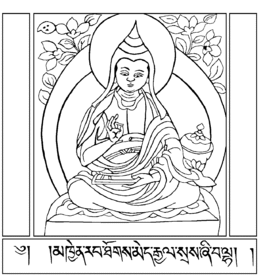I wrote this post two years ago, but a lot of it still rings true for me today, "Black Friday," a faux holiday intimately tied to the "constant economic growth as necessity" narrative. The one that says we must be "good little consumers" who spend our money and buy stuff, regardless of whether it's needed or not, in order to keep the world turning. The more we individual and collectively make efforts to break free from this narrative, and it's attendant actions, the better.
I was going to skip the commentary on all that Black Friday, holiday shopping madness, but then I stumbled upon
this post, and felt compelled to say something.
The author of the post suggests the following:
1. The buying frenzy and subsequent Christmas gift exchange excess are products of a consumerist culture.
2. That Americans, at least, don't have enough joyful holidays, and thus try to stuff all their celebration into this time of year.
3. That those of us who find the consumerist expressions of this season crass and devoid of meaning should suspend our judgment of those sucked into it.
4. That those sucked into the buying and giving frenzy are manifesting love in their own ways.
It all sounds well and good. I'm inclined to go along. Except...
Consider this section of the post:
We live in a consumer world, one where love is often shown through purchases, one where people want to express their deep love for their families by buying them flat-screen plasma TVs and ten-dollar Old Navy sweaters. It is love and that is the form love takes.
The frenzy comes from the fact that Americans don’t have enough holidays, don’t get to celebrate enough. As a pagan I have eight great high holidays a year, all equal in measure, all equally important and significant to the turns of time on this Earth. But most people have all of their main holiday joy packed in to one mad season which has to bear the holiday longings of an entire year. Please go easy on them. Recognize in them a light of love that is bent through the prism of a consumer world, one that not only mediates love for us but also gives us a common, sometimes cheesey language to express it in.
I agree with most of what the author is saying, and yet something is off. All this buying of stuff, often things people don't need or even want - "It is love and that is the form love takes." That strikes me as false. A kind of nice sounding gloss over of what's really happening.
The way I see it, one of the mechanisms of a consumerist culture is to instill inadequacy in people so that they will want more, and buy more. And I think over the years, this inadequacy runs so deep in many people that they feel compelled to give others something of monetary value - often large monetary value - in order to feel ok about the relationship. You want to have a happy spouse - you better give her an expensive ring. You want to have happy children, you better buy them the latest video game machine. You want to keep your friends around, you better buy them some fishing gear, or a new dress, or something worth something.
There's no doubt that people love each other, and want to express that. In fact, it's not even about giving gifts - which is beautiful when done wisely - it's this idea that what's happening at these door buster sales at Wal-Mart and Macy's is all about love. That's bullshit!
How often do you hear it from people towards the end of their lives - that what they want now, and maybe what they wish they had more of in the past, was more time with their loved ones. To tell stories, eat together, walk together, or just sit in silence together. All that stuff amounts to nothing in the end, and people know it deep down.
What I see in the folks buying cheap flat screen TVs, ugly sweaters, ties, useless plastic nick-nacs is a failure to experience love. They love their friends, family, and lovers, but what they are mostly expressing is a need to keep the relationships, to be a "good person" who gives to their loved ones. Sometimes, there is guilt there. Sometimes, there is a sense of duty there. Sometimes, there's a hope that whatever they give will appease their loved one for awhile. But all of it goes back to staving off that feeling of inadequacy, of not "being good enough," for awhile.
Those who actually allow themselves to experience love know how to respond to their loved ones. They override what the dominant culture is telling them to do, and listen for the opportunity to give wise gifts, and then do so. And if they give during this time of year, they do so having reflected upon their loved one first.
Recently, my father made some large bookshelves for my sister and her boyfriend (see above). With the new baby, and a need to make better use of their space, some good bookshelves meant a lot. And that my father actually made the bookshelves himself, taking the time and care to see that they'd fit the space and be functional, meant even more. This to me is an example of wise giving.
Going back to the article I linked to, here's a little more:
If you are looking for quiet this season, remember that quiet can be sought in your heart. It comes best from releasing judgement about how other people do their Yuletide: releasing judgement about the tack and the madness, but to see in everybody that same deep and utter ancient longing for light and warmth, and an impulse to give to others. For many of us, and I do say us, that raw impulse is translated through the media of consumerism, of the mall and the big box store. People work with what they have to work with. The understructure is still the same.
Yes. Releasing judgment of the individuals in your life is vital. That's a core part of a spiritual path in my opinion. However, I also believe that those of us who see the deep damage being done by excessive consumption - the economic yo-yoing, the human exploitation, and environmental destruction behind those TVs, Old Navy shirts, and whatnot - must learn how to express ourselves better with those who don't see it. We must be brave enough to share what we have learned, and share our wishes for the world, with our family, friends, and lovers, even if it causes confusion and upset in the short term. But most of all, we must take the gifts of our meditation practice, our sutra studies, our bowing, our chanting - we must take that and apply it to whatever we say and do around the holidays so that we can express the truths of our lives without placing unneeded an unwanted expectations on others. In other words, we can tell the grandmother who buys us a pile of junk every year about what we most want, and our dreams for the world around us, but we can't demand that she change. And if what we get is more junk from her, then we have the opportunity to accept that junk openly, knowing that we haven't held back.
In my view, a lot of this "not judging others" talk in spiritual communities located in consumerist cultures is tied to the very same inadequacy that drives others to compulsively shop. This "oh, don't judge" voice is often just a cloak spiritual types wear out of a hope that others will like them, see them as "good people." Sound familiar? Think about it. How often do you find yourself biting your tongue instead of saying something that might upset a loved one? And how often does that same comment get labeled a judgment, even if it might just be an observation? This is one of the places I think Marshall Rosenberg's work with
Non-violent communication is helpful. Because my own experience has shown me that often when I'm biting my tongue it's driven not by loving patience and wise consideration of the other person, but by a fear that whatever I say will drive the other person away. Or make them see me as a "lesser person." It's no better, really, than impulsively buying them an expensive toy they don't need.
Recently, I commented on a sangha friend's Facebook page that we should move Thanksgiving to another time of year, and reshape the holiday fully around gratitude. Divorce it from it's genocidal past, and perhaps also from it's genocidal present (i.e. turkey murder). As the author of the post I'm writing about said, we Americans need more holidays of joy. Re-framing Thanksgiving could be one way to offer people a chance to express love without piles of material gifts. Some already use it in this way.
Now if only I could figure out a way to liberate all those turkeys...

